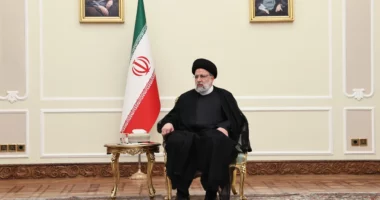A chance encounter at a community event altered my perspective entirely. I attended a local rally, not expecting to engage with someone whose beliefs clashed so starkly with my own. Yet, amid the gathering, I found myself in conversation with a passionate advocate whose stance on a divisive issue stood in direct opposition to mine.
Rather than retreat into silence or walk away, I chose to delve deeper, to comprehend the motivations and ideals that fueled this person’s convictions. It wasn’t a simple exchange; it was an hour of listening, empathizing, and genuinely trying to understand a viewpoint drastically different from mine.
What I gained from that conversation was profound—an insight into the fears, aspirations, and underlying humanity that bind us all despite ideological disparities. Similarly, the individual I spoke with was moved by the fact that someone willing to engage respectfully existed on the opposing side. It was a pivotal moment that highlighted the immense power of empathy.
Reflecting on that encounter often brings me to contemplate the ongoing conflicts in regions like the Middle East. While personally not directly involved, the recent turmoil and its devastating consequences for both sides—the October 7 attack on Israel by Hamas followed by Israel’s response in Gaza—have left me deeply troubled. Witnessing the anguish of friends from Jewish and Muslim backgrounds, coupled with the escalating tensions in our own country, only exacerbates these concerns.
Communities worldwide are mobilizing, expressing their outrage through marches and demonstrations, often sparking heated debates and counterprotests. The palpable fear of repercussion stemming from such conflicts is evident among Jewish and Arab populations, mirroring the growing polarization within the United States.
These turbulent times underscore a broader issue—our increasing inability to engage in constructive dialogue with those holding opposing views. A recent poll highlighted the escalating frustration and stress Americans experience when discussing politics across ideological divides.
Empathy, the ability to understand and share the feelings of another, seems to be vanishing in our discussions on topics ranging from abortion and gun control to conflicts in distant lands. It’s as if embracing empathy for both sides of an argument has become an impossible feat. The tendency to label those with differing views as not just wrong but inherently bad dehumanizes them, perpetuating the cycle of discord.
We’ve allowed this polarization to poison our discourse, neglecting opportunities to bridge the gap and find common ground. Investing in education that fosters empathy and resilience in face-to-face conversations might have been a more effective approach. Instead, we witness the repercussions of this lack of empathy in the wake of highly polarizing conflicts like the Israel-Hamas war.
A staggering majority of Americans fear that this conflict will spur hate crimes domestically, and sadly, their concerns have not been unfounded. However, in our democratic society, while free speech and peaceful protests are cherished rights, hate speech must find no place. Empathy remains our strongest shield against bigotry.
The cries of fear from an Israeli child echo the cries of a Palestinian child. The agony of losing a loved one transcends borders, resonating universally. Empathy doesn’t necessitate condoning violence; it simply requires acknowledging the pain and suffering on both sides of a conflict.
Our nation’s history is marked by alliances forged across diverse groups, uniting for common causes. Today, we witness similar alliances forming amidst the turmoil, where seemingly opposing factions come together to advocate for peace.
My fervent hope is that amidst praying for lasting peace abroad, we Americans initiate a revolution of empathy at home. Only by valuing every human life equally can we combat hatred in all its forms.





